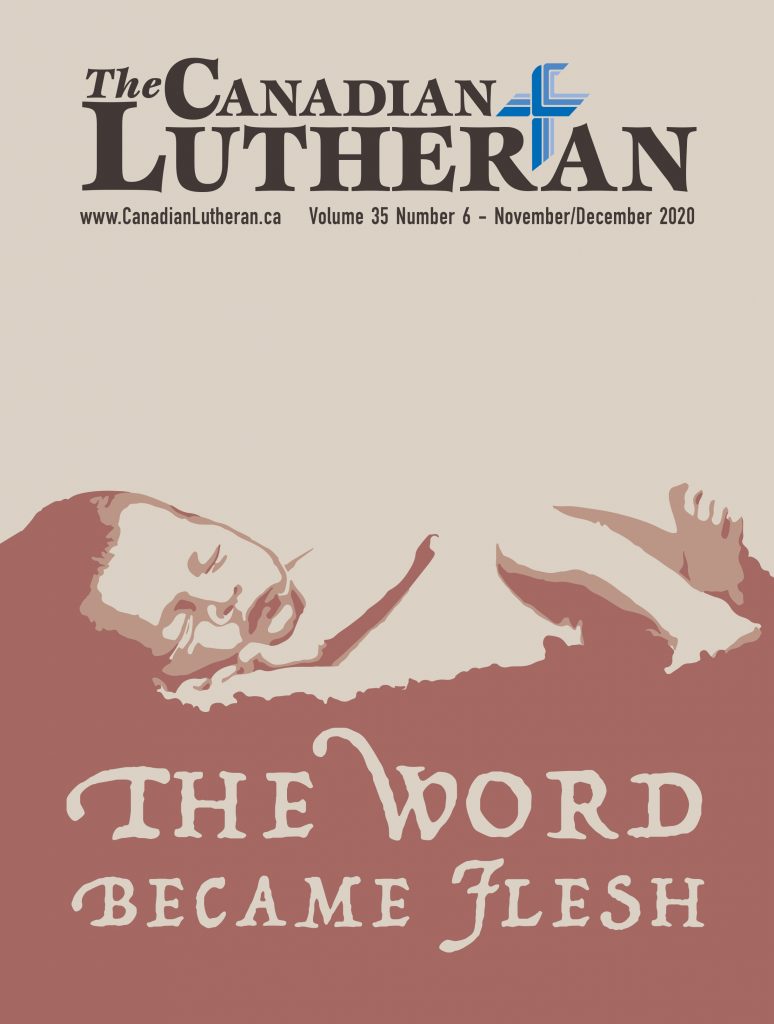Newborn Hope
 by Mathew Block
by Mathew Block
You are out walking in a place you do not know well. The sun has set. A chill wind begins to blow. You want to go home, but do not know the way. You are at the mercy of the night. Of the cold. If only someone would light the way…
This is the picture Isaiah paints of the world before the birth of Christ (Isaiah 9:2). The people “walked in darkness,” he says. They “dwelt in a land of deep darkness”—prisoners of the night. There is no sun. No warmth. It is a hard and barren world.
Christina Rossetti, writing two and half millennia later, describes something of the same bitter landscape in her poem “A Christmas Carol.” In a bit of poetic license, she imagines the birth of Christ as having taken place in “the bleak midwinter.” The first verse of the poem sets the stage:
In the bleak midwinter
Frosty wind made moan;
Earth stood hard as iron,
Water like a stone;
Snow had fallen, snow on snow,
Snow on snow,
In the bleak midwinter
Long ago.
 It is into this dark and sinful world—symbolized here as the harshness of deep winter—that our God comes. “Heaven cannot hold Him,” Rossetti says, and yet He comes all the same. The wonder of the Incarnation is confessed in stark, simple terms: “In the bleak midwinter / A stable-place sufficed” to house “the Lord God Almighty / Jesus Christ.”
It is into this dark and sinful world—symbolized here as the harshness of deep winter—that our God comes. “Heaven cannot hold Him,” Rossetti says, and yet He comes all the same. The wonder of the Incarnation is confessed in stark, simple terms: “In the bleak midwinter / A stable-place sufficed” to house “the Lord God Almighty / Jesus Christ.”
Our God comes. He comes into the deep winter of our sin. He comes to warm our cold hearts—to make alive that which is dark and barren. He comes to make Spring, like Aslan in The Chronicles of Narnia, bounding into a world of “always Winter, never Christmas.” Because at last it is Christmas; the fulfillment of generations of prophecy is at hand. Jesus has come! The Child of Mercy has been born! God has descended to dwell among us!
“The people who walked in darkness have seen a great light” Isaiah writes. “Those who dwelt in a land of deep darkness, on them has light shone…. For to us a Child is born, to us a Son is given” (Isaiah 9:2,6). This newborn Son shines on our benighted world, freeing us from the depths of winter’s grip. Like the dawn, He bursts forth in light. He brings peace. He brings joy. He brings salvation.
He also brings hope, hope that you will need during what may prove to be a very bleak winter indeed. The pandemic may rob you of much that is good this season: time spent with friends and family; time spent together in worship with your local congregation; and more.
I pray that the good news of Jesus Christ—the coming of God to be with you, to die for you, to rise again for you—will take on new meaning for you this Christmas.
But one thing that cannot be taken from you is Christ Himself. “In all these things we are more than conquerors through Him who loved us,” St. Paul writes. “For I am sure that neither death nor life, nor angels nor rulers, nor things present nor things to come, nor powers, nor height nor depth, nor anything else in all creation, will be able to separate us from the love of God in Christ Jesus our Lord” (Romans 8:37-39).
This God loves you so that He took on flesh for your sake; He will not be frightened away by a virus. This God loves you so that He allowed Himself to be nailed to a cross for your sins; He will not be stymied by social distancing measures. No tomb can shut Him in. No locked door can keep Him out. He comes. Yes, He comes to you now just the same as always, with gifts of love and hope and peace beyond all mortal understanding.
In this issue, we reflect anew on the miracle of that coming. Kelly Klages invites us to deeper meditation on the mystery of the Incarnation—to marvel that the Word of God became flesh like us. Rev. Mark Smith reminds us how the light of Christmas overcomes darkness, even the darkness of war. And Rev. Dr. Leonardo Neitzel encourages us to remember that Christ—the incarnate Word of God—comes to us not merely once a year, but again and again in the pages of Holy Scripture.
I pray that the good news of Jesus Christ—the coming of God to be with you, to die for you, to rise again for you—will take on new meaning for you this Christmas. May the miracle of the birth of Christ bring you peace. And may it also grant you newborn hope to carry you through the midwinter of this world.
———————
Mathew Block is editor of The Canadian Lutheran and communications manager for the International Lutheran Council.





